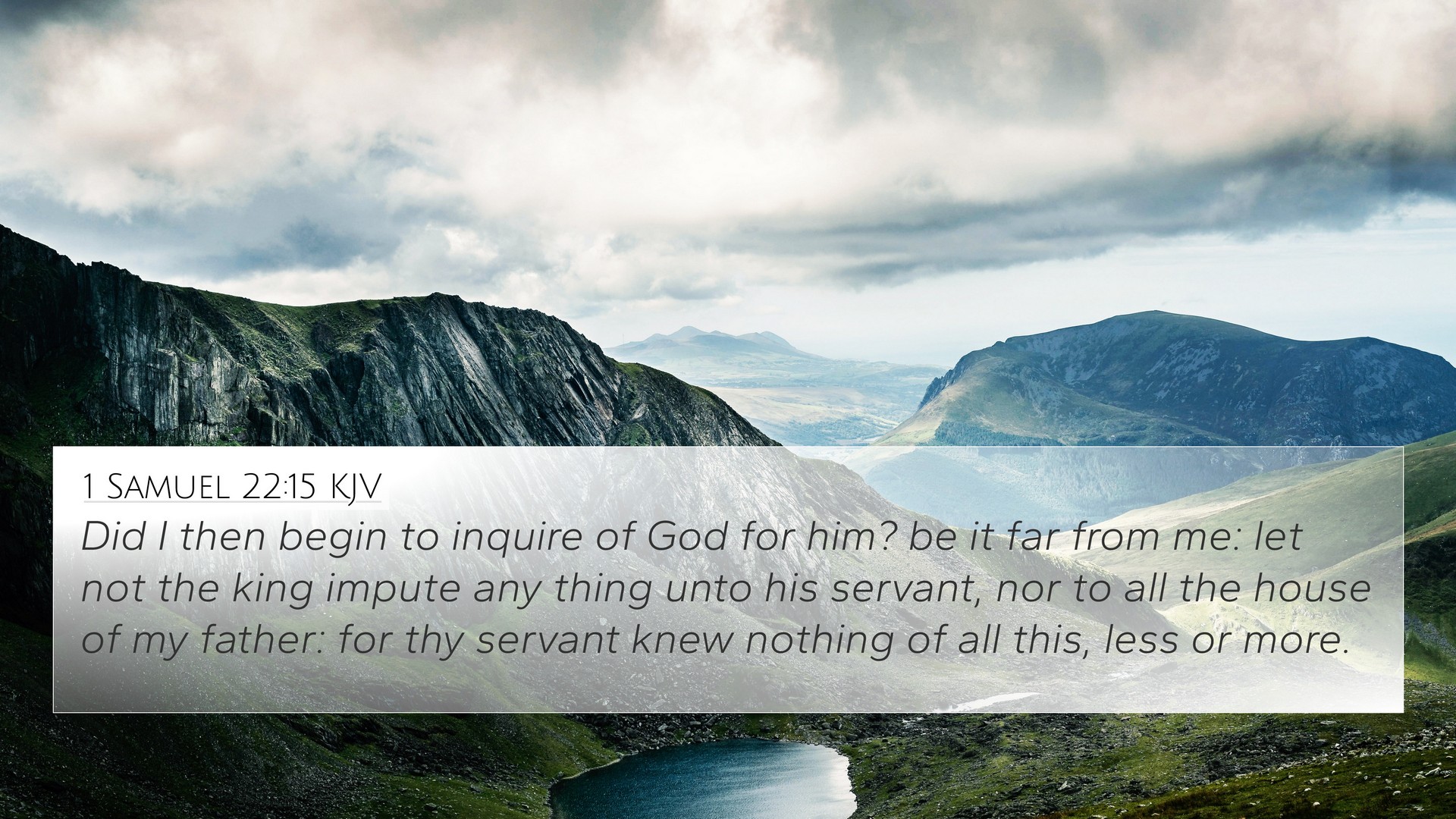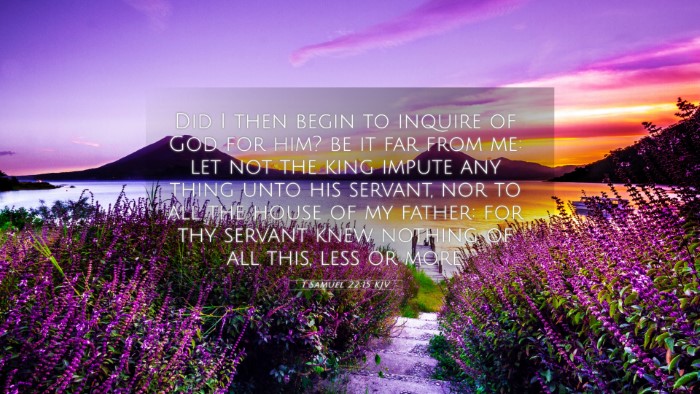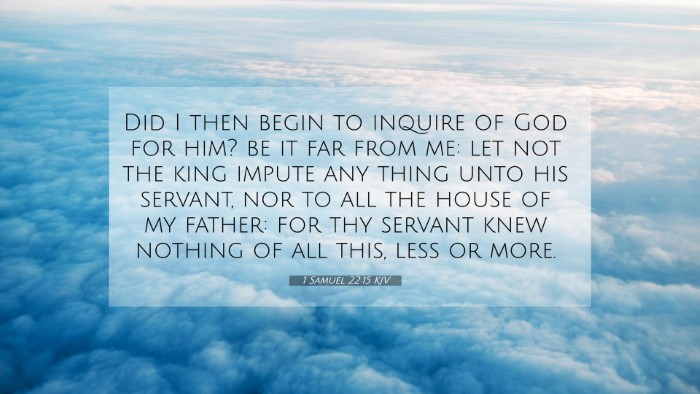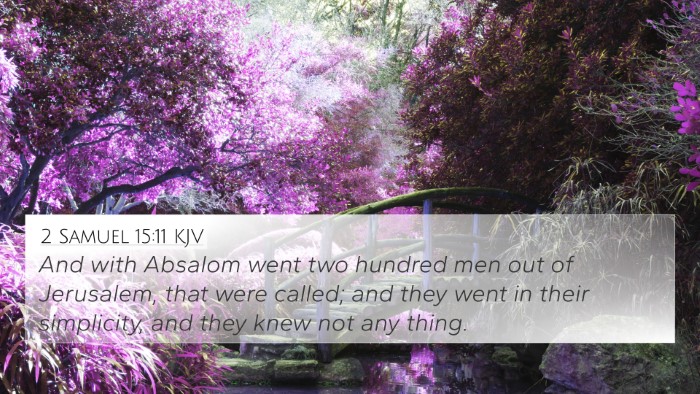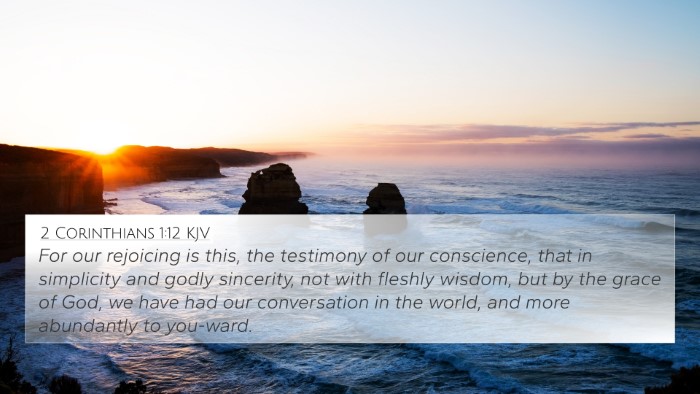Understanding 1 Samuel 22:15
Verse Context: 1 Samuel 22:15 states, "Did today begin I to inquire of God for him? Be it far from me: for I will not destroy the king's son." This verse is part of a larger narrative about King Saul, David, and the consequences of Saul's pursuit of David.
Commentary Insights
-
Matthew Henry's Commentary:
Henry emphasizes the deep moral dilemma faced by Abiathar, the priest, who escaped from Saul's massacre of the priests at Nob. The phrase exemplifies his loyalty to David despite the dangers lurking around them due to Saul's wrath. Abiathar refuses to betray David by seeking counsel from God on whether to turn against him, showcasing an unwavering commitment to God's anointed.
-
Albert Barnes' Notes:
Barnes notes that this verse highlights a turning point where sincere inquiries of God become essential during perilous times. The question posed indicates that there is a point where one must discern between rightful and wrongful actions in one's allegiance to the rightful king of Israel, which at that moment is David, although Saul still holds the throne.
-
Adam Clarke's Commentary:
Clarke comments on the implications of this verse within the broader context of David's rise to kingship. He discusses how asking God about David would be seen as treachery among the people, and how Abiathar’s resistance to seeking guidance for harm against David reinforces the narrative of David's innocence and Saul's wrongful pursuit of him.
Cross-References
The following Bible verses provide connections and thematic parallels to 1 Samuel 22:15:
- 1 Samuel 16:13: This verse describes David being anointed by Samuel, highlighting God's choice of David as king.
- 1 Samuel 19:1: Here, Saul orders Jonathan to kill David, revealing the hostility towards David from Saul and the conflicting loyalties that arise.
- Psalm 37:32-33: This psalm reflects the righteous one's dependence on God and protection from the wicked, paralleling David's experiences.
- Matthew 5:10-12: In the Beatitudes, Jesus speaks about the blessings on those who are persecuted for righteousness, similar to David's plight.
- Romans 11:29: This verse about God’s gifts and call being irrevocable ties to the theme of God's chosen one and His plans remaining intact despite human decisions.
- 1 Peter 2:9: The concept of a chosen generation can reflect on how David's lineage is significant in God's plans which fulfill beyond the immediate context.
- 2 Samuel 1:1-16: This passage recounts David's reaction to Saul's death, reinforcing the necessity of loyalty to God's anointed, even in struggles.
Thematic Connections
This verse opens discussions on critical themes such as:
- Loyalty to God’s Anointed: Abiathar’s stance showcases the importance of recognizing God’s chosen leaders, even amidst adversity.
- Faith during Trials: The inquiry towards doing harm illustrates the constant tension between human fears and divine calling.
- Moral Integrity: The refusal to assist Saul signifies the strength of moral character in opposing wickedness, even at personal risk.
Conclusion
1 Samuel 22:15 serves as a stark reminder of the complexities of following God amidst peril and maintaining faith in His plans. Through the lens of the interconnected verse themes and insights from respected public domain commentators, we can see how important it is to cross-reference scripture to derive deeper meanings. This verse not only highlights Abiathar’s loyalty but also serves as a reflective point on the character of David and the overarching narrative of kingship as ordained by God.
